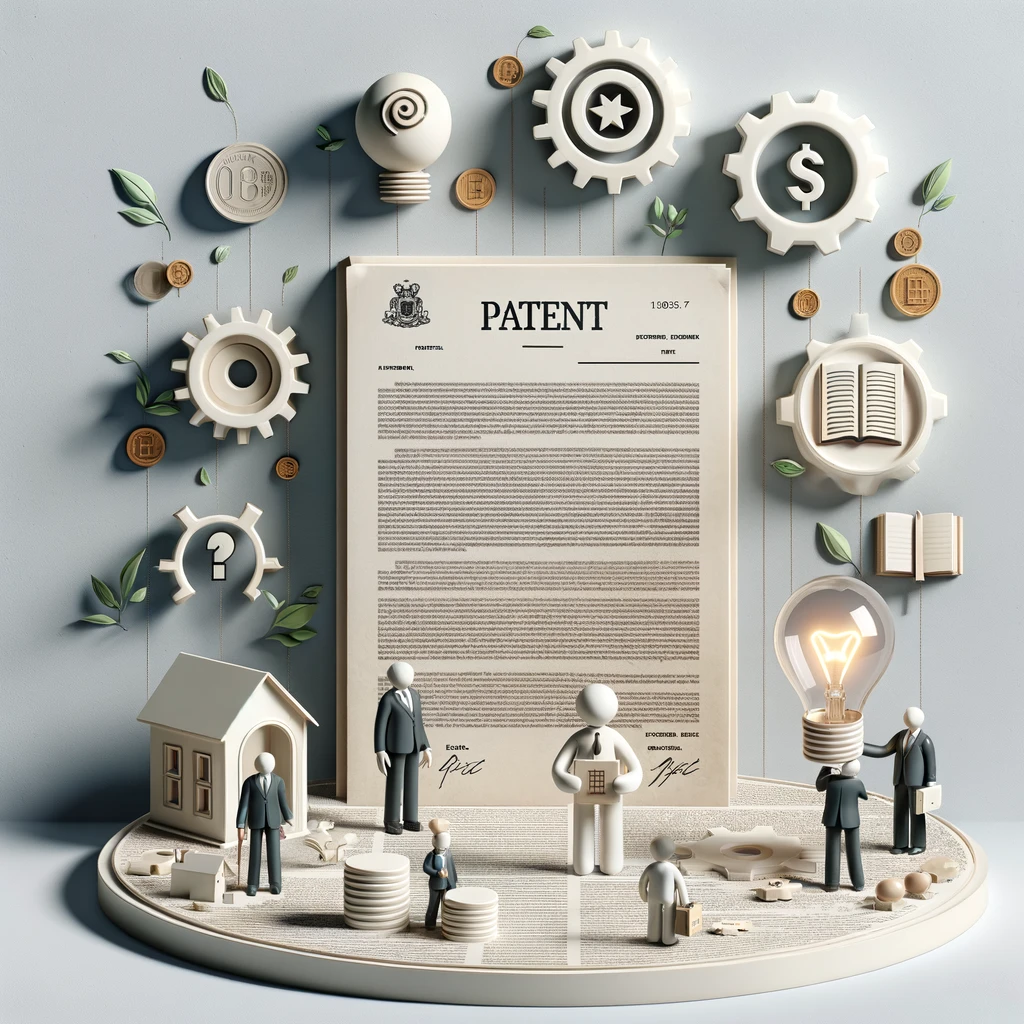Navigating Patent Fees: Updates, Reductions, and Refunds at the European Patent Office (EPO)
Navigating the Latest Fee Schedule Updates at the European Patent Office (EPO)
In the ever-evolving landscape of patent (application) procedures, staying informed about fee schedule updates is crucial for patent applicants and innovators. Starting from April 1, 2024, the European Patent Office (EPO) is introducing changes to its fee structure.
The main (usually applied) fee schedule is as follows:
| EUR | |
| 1. Filing fee | |
| (i) where the European patent application or, in the case of an international application, the form for entry into the European phase (EPO Form 1200) is filed online | 135 |
| 2. Search fee in respect of | |
| a European or supplementary European search on an application filed on or after 1 July 2005 | 1520 |
| 3. Designation fee for one or more Contracting States | 685 |
| 4. Renewal fees for the European patent application, calculated in each case from the date of filing of the application | |
| for the 3rd year | 690 |
| for the 4th year | 845 |
| for the 5th year | 1000 |
| for the 6th year | 1155 |
| for the 7th year | 1310 |
| for the 8th year | 1465 |
| for the 9th year | 1620 |
| for the 10th and each subsequent year | 1775 |
| 6. Examination fee in respect of | |
| an application filed before 1 July 2005 | 2135 |
| 7. Fee for grant including fee for publication of the European patent specification, in respect of an application filed on or after 1 April 2009 | 1080 |
| 12. Fee for further processing | |
| in the event of late payment of a fee | 50% of the relevant fee |
| in the event of late performance of the acts required under Rule 71, paragraph 3 | 300 |
| other cases | 300 |
| 15. Claims fee in respect of an application filed on or after 1 April 2009 | |
| for the 16th and each subsequent claim up to the limit of 50 | 275 |
| for the 51st and each subsequent claim | 685 |
Cost-Efficiency Unveiled: Understanding the Reduced Fees at EPO for Patent Applicants
In a groundbreaking move set to revolutionize patent application cost-effectiveness, the European Patent Office (EPO) is implementing a fresh fee reduction scheme, starting from April 1, 2024. These changes are designed to simplify the process and reduce expenses, fostering innovation among a broader range of entities.
A New Era of Fee Reductions
With an unwavering commitment to promoting innovation, the EPO has introduced a new fee reduction scheme, introducing two crucial rules, Rule 7a and Rule 7b, titled “Reduction of Fees” and “Declaration of Eligibility for a Reduction of Fees,” respectively. These rules come into effect on April 1, 2024, offering patent applicants an unprecedented opportunity to save on costs.
Empowering Micro-Entities and Smaller Innovators
The cornerstone of these rule changes is the creation of a dedicated fee reduction scheme tailored for micro-entities. This visionary initiative aims to empower smaller and less experienced European entities by simplifying their access to the European patent system. It serves as a complement to existing support measures, especially those related to language-related fee reductions.

Eligibility Criteria for Language-Related Fee Reductions
While the eligibility criteria for language-related fee reductions remain unchanged, they now fall under Article 14(4) and Rule 7a(1) and (2) of the European Patent Convention (EPC), previously under Rule 6(3) and (4) EPC. Small entities eligible for these reductions must have their residence or principal place of business in an EPC contracting state and file a European patent application or request for examination in an official language of that state, excluding English, French, or German.
The language-related fee reductions under Rule 7a(1) EPC are accessible to various small entities, including:
- Microenterprises
- Small and medium-sized enterprises (SMEs)
- Natural persons
- Non-profit organizations
- Universities and public research organizations
Expanding Opportunities with Micro-Entities
Under the new scheme, the reduction of fees, as outlined in Rule 7a(3) EPC, is exclusively designed for micro-entities, irrespective of their nationality or domicile. Micro-entities encompass the aforementioned small entities, with the exception of Small and Medium-sized Enterprises (SMEs), which are larger in scale than microenterprises. The definition of a microenterprise is established in Article 2 of Commission Recommendation 2003/361/EC of May 6, 2003.
Defining Eligible Entities
Let’s clarify the eligibility criteria for entities seeking fee reductions under both the language-related and micro-entity-related support schemes, as stipulated in Rule 7a(2) and (3) EPC:
(i) Non-profit organizations: These organizations, by their legal form or statutes, are forbidden from generating income, profit, or financial gain for their owners. In cases where they are permitted to make a profit, there is a legal or statutory obligation to reinvest the profits in the interest of the organization.
(ii) Universities: In this context, “classic” universities are higher education and research institutions defined by relevant legislation. Additionally, comparable institutions such as secondary or higher education establishments are considered universities.
(iii) Public research organizations: These entities, including universities and research institutes organized under public law, are primarily dedicated to conducting fundamental research, industrial research, or experimental development, and disseminating results through teaching, publication, or technology transfer. All profits must be reinvested in these activities, result dissemination, or teaching.
Fee Reduction Percentage
For both the language-related and micro-entity-related support schemes under Rule 7a(1) and (3) EPC, the reduction is a substantial 30% of the relevant fee. Specifically, the language-related reduction for small applicants under Rule 7a(1) EPC applies to the filing fee, including any additional fees forming part of the filing fee, and the examination fee.
Fee Reduction Application Areas
Under Rule 7a(3) EPC, the reduction for micro-entities applies to a wide range of fees, including:
- The filing fee, including any additional fees forming part of the filing fee.
- The fee for a European search or the fee for a supplementary European search in the case of a Euro-PCT application searched by an International Searching Authority (ISA) other than the EPO.
- The examination fee, and if applicable, the previously paid international search fee where the EPO acted as ISA.
- The designation fee.
- The fee for grant.
- The renewal fees for the European patent application.
- Double Reduction for Examination Fees
Notably, the examination fee may be reduced twice under the micro-entity-related support scheme of Rule 7a(3) EPC. Firstly, by a reduction of the examination fee itself, and secondly, additionally by a reduction of the effectively paid international search fee, which is the search fee net of potential refunds or reductions. For example, the international search fee might have been fully or partially refunded due to the re-use of a previous search report drawn up by the EPO as ISA on an application with claimed priority.
The reduction of the international search fee applies as long as the examination fee is paid on or after April 1, 2024, regardless of when the international search fee was initially paid. Moreover, the fee reductions for micro-entities under Rule 7a(3) EPC are applicable to payments for European patent applications or international applications that have entered the European phase (Euro-PCT applications). However, there is a caveat: micro-entities are eligible for fee reductions only if they have filed fewer than five applications with relevant dates within the five years preceding the relevant date of the application. If an entity has submitted five or more previous applications within this five-year period, they will not qualify for a fee reduction.
Combining Fee Reduction Schemes
Lastly, it’s important to note that the EPO allows for the combination of various fee reduction schemes. For instance, an applicant may be eligible for fee reductions under both Rule 7a(1) and Rule 7a(3) EPC, maximizing their cost-saving potential.
These significant changes in the EPO’s fee reduction schemes mark a significant step toward fostering innovation and making patent protection more accessible to a broader range of entities, particularly micro-enterprises and smaller innovators.
For further information on how these changes may impact your patent application or to determine your eligibility for fee reductions, consult a qualified European patent attorney who can guide you through the updated procedures and ensure that you maximize the benefits of these new fee reduction opportunities.

Refund Policies Demystified: EPO’s Approach to Patent Fee Refunds
When it comes to navigating the intricacies of patent fees, understanding refund policies can make a significant difference in your intellectual property strategy. The European Patent Office (EPO) offers a unique approach to patent search fee refunds, ensuring fairness and efficiency in the patent application process.
Refunds Based on Search Reports
One of the key aspects of the EPO’s refund policies is related to search reports and their basis. Here’s what you need to know:
- European Search Report Refunds:
If you’ve filed a European patent application on or after July 1, 2005, and the European search report is based on:
An earlier search report prepared by the Office on an application whose priority is claimed. You may be eligible for a refund of the search fee. The refund policy is as follows:
For a full search, you can receive a 100% refund.
For a partial search, a 25% refund is applicable.
- International Search Report Refunds:
For international patent applications filed on or after January 1, 2004, and where the international search report is based on an earlier search report prepared by the Office on an application whose priority is claimed for the international application, the EPO provides refunds as follows:
For a full international search, an 84% refund is available.
For a partial international search, a 21% refund can be obtained.
Consulting Experts for Optimal Strategy
To make the most of these refund opportunities, it’s advisable to consult with experienced European patent attorneys who can help you navigate the nuances of patent fees, including refunds. They can guide you through the process, ensuring that you maximize cost-effectiveness while securing robust patent protection.
Conclusion: Maximizing Refund Benefits
In conclusion, understanding the EPO’s patent search fee refund policies is an essential part of your patent application strategy. By leveraging these policies, you can make the most of your investment while ensuring that your intellectual property is protected effectively.

